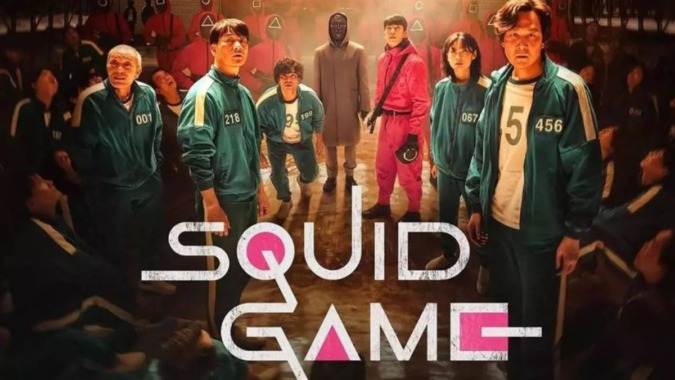
I’m naturally not inclined towards competitiveness, or perhaps I tend to suppress any competitive instincts within me. Some might argue that my aversion to losing is the driving force, but winning doesn’t appeal to me either, as it implies someone else experiencing loss, creating a sense of tension within me.
While I appreciate excellence in various forms, I don’t find the need for it to be organized into competitive events. Awards like the Emmys, Oscars, Grammys, Tonys, Nobel or Pulitzer Prizes, and the outcomes of events like the World Series or World Cup don’t hold much interest for me. It seems, however, that my perspective is not shared by the vast numbers worldwide who eagerly engage in such spectacles.
Related: 11 Best Christmas Movies of All Time
Television has a longstanding tradition of featuring contests and games, yet I find them tolerable and sometimes enjoyable, especially when they lack high-stakes strategies, backstabbing, or contestants justifying unpleasant behavior with a desire to win. Classic game shows with limited strategic depth are acceptable to me.
Related: Top 9 Kickboxing Movies Of All Time
I particularly enjoy “The Great British Baking Show” for its supportive and mutually helpful atmosphere. Even “MasterChef Junior,” which introduces opportunities for young cooks to undermine each other, doesn’t quite align with my preferences. Frankly, I would prefer if nobody were ever eliminated; I just want to observe their progress and improvement.
My disposition makes it evident that a career as a TV executive is not for me.
You May Like: From Nosferatu to Now: Iconic Movie and TV Vampires
In 2021, the Korean series “Squid Game” gained global acclaim as a suspenseful satire on late-stage capitalism, cleverly presented within the framework of an elimination competition. The show, with its intriguing premise and thoughtful execution, garnered six Emmys.
While awaiting a reported second season, Netflix, the platform that streamed the original series, has introduced “Squid Game: The Challenge,” turning Hwang’s fictional game into a real one, minus the lethal executions.
Related: Rambo: First Blood, Still the Best Movie About the Consequences of War
Upon hearing about this real-life adaptation, my immediate thoughts oscillated between questioning the rationale behind creating a show based on such a cruel concept and acknowledging its logical extension from the original series.
Premiering on Wednesday, “The Challenge” faithfully reproduces the sets and costumes of “Squid Game” and incorporates some games from the series while introducing new ones. The initial episode features the iconic “Red Light, Green Light” game, where participants advance across a field, freezing when a giant doll stops singing. Failure results in a simulated “death” with explosive squibs. The game structure aims to produce a single winner within a predetermined number of episodes, necessitating frequent eliminations.
Related: The Marvels Post-Credits Scene, Decoded
Similar to the series, contestants reside in a vast dormitory beneath a translucent sphere filled with money, which increases as players depart. They endure undesirable food, making better meals a coveted reward. Alliances form, and dissolve due to events or clever maneuvering, and as the show progresses, the once-fun game transforms into a less enjoyable reality. Leaving the game becomes a kind of death, eroding hope to walk away with life-changing sums of money.
Reality television, acknowledged by even its fans to be predominantly fiction, manipulates a spectrum of predictable possibilities within producer-defined parameters.
Read: A Beginner’s Guide To Hollywood
“The Challenge” focuses on a select few players who evolve into characters, albeit hastily sketched ones. Their lives are observed from a distance, reminiscent of security camera footage, or up close in conversations that are evidently staged for the camera. The show serves as a reminder that the world is populated by individuals with distinct perspectives, ways of doing things, histories, and fates—a lesson worth revisiting.
Despite my professed non-competitiveness, I don’t intend to disparage the vast array of game shows that generally provide harmless entertainment and opportunities for viewers to engage without the risk of winning or losing. In the case of “Squid Game,” the cruelty was intrinsic to the narrative, and some of that essence has been carried over into “The Challenge.”
Beyond the conventional elements of suspense, challenging tasks, and tough decisions, participants are confronted with moral discomfort. They might be compelled to choose between acting nobly and metaphorically assassinating a competitor in front of an audience, forcing them to confront their own ethical boundaries.
It’s a clever approach.
The original “Squid Game” unveiled the shocking revelation that the unfortunate participants were mere pawns toyed with and disposed of for the amusement of the affluent.
While not a novel concept, it was a series about an audience within an audience, providing viewers with some detachment even as they derived enjoyment from the unfolding drama.
However, “Squid Game: The Challenge” eliminates this layered perspective, making the audience the sole observers, leaving us to interpret the unfolding events as we see fit.





